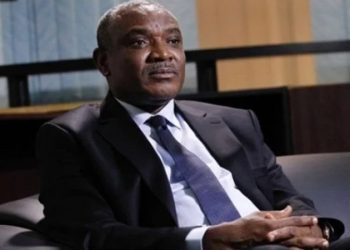*Emphasises on electronic transmission
Political parties and contestants in the 2023 elections have been advised by the Independent National Electoral Commission (INEC) to revert to the people and campaign for votes, as nothing else outside the voters would lead them to victory at any level with the new measures the commission had taken to ensure the credibility of the process.
In fact, the electoral umpire, also vowed on Friday to punish political parties found to be violating electoral timelines as well as provisions of the new Electoral Act 2022 (as amended), especially during the 2023 elections.
It was also on a day the commission, which spoke on the mode of the election, reiterated that it would neither jettison electronic transmission of results in favour of manual process, nor not lower the bar in the election, contrary to reports last week that it would adopt manual means of handling the process.
Festus Okoye, spokesman of the commission, who made the clarification during a post-election roundtable and public presentation of the final report on the observation of 2022 Ekiti and Osun Governorship Election, organised by a human rights organisation, Yiaga Africa, assured that it would not be cowed be any group of persons or parties.
Okoye, INEC’s National Commissioner and Chairman of its Information and Voter Education Committee, said, “I want to seize this opportunity to assure Nigerians that this present commission will be bold and courageous in prosecuting the 2023 general elections.
“We are going to harvest and we will continue to harvest lessons from the Edo governorship election, Ondo governorship election, Anambra governorship election, and Ekiti and Osun governorship elections in shaping the way we approach the 2023 general election.
“We are going to harvest all the good practices, we are also going to look at some of those issues we did not do so well and we will improve on them. But our assurance is that this commission will not lower the bar and we are going to improve and we continue to improve with every election.
“All the good practices we deployed in prosecuting the elections under review will also be deployed for the prosecution of the 2023 general election. This commission will continue to upload polling unit results to our INEC results viewing portal; this commission will not depart from it.
“The Nigerian people will be involved at every inch of the process in terms of knowing what is going on at the various polling units through our processes and procedures. We will continue to also manage the collation process transparently so that all Nigerians will also follow whatever we are doing and we will not depart from all the good practices we have established.”
Okoye, urging Nigerians, to support the commission in delivering the goods, particularly admonished civil society organisations and other critical stakeholders to study the Electoral Act 2022 in order to gain needed knowledge of its provisions.
He added: “There are creative and innovative provisions that have been imputed into the Electoral Act 2022 that has changed the framework and dynamics of election management and result management in Nigeria. Unless we have a good knowledge of these documents, it will be very difficult for us to follow the trajectory of the electoral process and some of the innovations and some of the changes the commission we make and we continue to make towards improving the character and content and context of elections.
“We plead for the understanding of Nigerians, we plead for the cooperation of Nigerians because we recognise the fact that the 2023 election will be challenging, but we have the capacity, and we also have the courage to face those challenges in a very broad and courageous manner.”
Chairman, Board of Yiaga Africa, Hussaini Abdu, while urging INEC to take a cue from the Ekiti and Osun gubernatorial elections, which he said passed the integrity test, stated that poor logistics had been a major bane in the history of Nigeria, adding that the commission must also concentrate in improving on this aspect.
His words: “Many times, particularly in the last three rounds or cycles of elections these ones that we categorise as up season elections shape the character of what to expect in the forthcoming general elections. We saw that in 2015 and we saw that in 2019, but what makes this more remarkable and require much deeper reflections and conversations is the fact that we have elections taking place after the new electoral Act and that is very important.”







